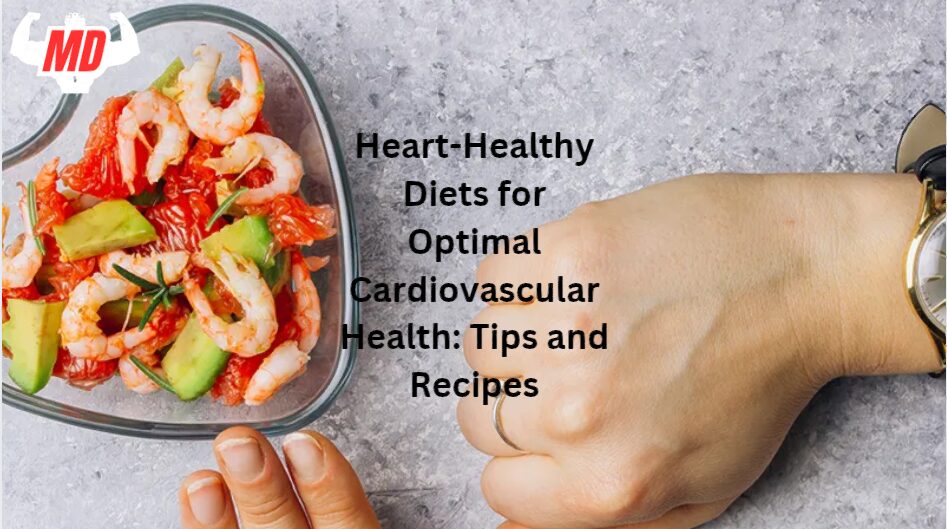Maintaining cardiovascular health is essential for overall well-being, and diet is crucial in supporting heart function. A well-balanced diet can help manage cholesterol levels, regulate blood pressure, and reduce inflammation. Dietary patterns like Mediterranean and DASH diets have been widely recognized for their cardiovascular benefits.
Understanding Heart-Healthy Diets
Diet significantly impacts heart health by influencing cholesterol levels, blood pressure, and inflammation. A poor diet high in processed foods and unhealthy fats increases the risk of heart disease, while a diet rich in whole, nutrient-dense foods promotes cardiovascular well-being.
The Mediterranean diet emphasizes fresh vegetables, healthy fats, and lean proteins, while the DASH diet focuses on reducing sodium intake to manage blood pressure. Plant-based diets, which prioritize fruits, vegetables, and legumes, also provide heart-protective benefits.
The key principles of a heart-healthy diet include minimizing sodium, avoiding trans fats, and choosing whole, unprocessed foods.
Best Foods for Cardiovascular Health
Fatty fish such as salmon, mackerel, and sardines are rich in omega-3 fatty acids, which help reduce inflammation and lower the risk of heart disease. Leafy greens, including spinach, kale, and Swiss chard, provide essential vitamins, minerals, and antioxidants that support heart function. Whole grains like quinoa, brown rice, and oats help regulate blood sugar levels and maintain a healthy weight.
Nuts and seeds, such as almonds, walnuts, flaxseeds, and chia seeds, offer healthy fats and fiber contributing to cardiovascular health. Olive oil is an excellent monounsaturated fat source that improves cholesterol levels and protects against heart disease.
Limiting processed foods, sugary beverages, and excessive sodium intake is essential for optimal heart health.
Practical Heart-Healthy Eating Tips
Reducing sodium intake can be achieved by cooking meals at home and using herbs and spices instead of salt. Opting for natural sweeteners like honey or fresh fruit instead of refined sugar can help manage blood sugar levels.
Replacing unhealthy fats like butter and margarine with heart-friendly alternatives like avocado, olive oil, and nuts improves lipid profiles.
Meal prepping is an effective strategy for ensuring nutritious meals throughout the week. Preparing large batches of whole grains, lean proteins, and vegetables allows for convenient, heart-healthy meal choices. Practicing portion control and mindful eating, such as paying attention to hunger cues and avoiding distractions, can help prevent overeating and support weight management.

Heart-Healthy Recipes for Every Meal
A heart-healthy breakfast can include a nutrient-packed smoothie made with spinach, banana, almond milk, flaxseeds, and Greek yogurt. Another excellent option is an oatmeal bowl topped with berries, nuts, and a drizzle of honey.
A quinoa salad with mixed vegetables, chickpeas, and a lemon-olive oil dressing provides a balanced meal rich in fiber and healthy fats for lunch. Dinner options include baked salmon seasoned with herbs, served with roasted vegetables and brown rice for a wholesome and satisfying meal.
Healthy snacks are vital in maintaining energy levels and preventing unhealthy cravings. Nutrient-dense snack ideas include almonds or walnuts, sliced apples with peanut butter, and hummus with fresh-cut vegetables.
Lifestyle Changes Beyond Diet
While diet is a cornerstone of heart health, lifestyle factors also play a crucial role. Regular physical activity, such as brisk walking, swimming, or cycling, strengthens the cardiovascular system and improves circulation. Managing stress through relaxation techniques, meditation, and deep breathing exercises can help reduce the risk of high blood pressure and heart disease.
Adequate sleep is essential for heart health, as poor sleep can contribute to increased stress levels and hypertension. Staying well-hydrated supports circulation and overall cardiovascular function. Regular medical check-ups help monitor heart health indicators, allowing for early detection and management of potential issues.

Frequently Asked Questions
What are the best diets for heart health?
The Mediterranean and DASH diets are among the most effective for heart health, emphasizing whole foods, healthy fats, and low sodium intake.
How can I reduce sodium in my diet?
Reducing processed foods, using fresh herbs and spices for seasoning, and cooking meals at home can significantly lower sodium intake.
Is it possible to enjoy desserts on a heart-healthy diet?
Yes, opting for naturally sweetened desserts such as fruit, dark chocolate, and yogurt-based treats can satisfy sweet cravings without harming heart health.



